|
"COLE AND BEANA, COME AND PRAY!" My husband's voice rings out through the house as part of our familiar bedtime routines. My college-age daughter and son drop what they're doing and schlep their way to our bedroom. When they were little, they used to run and jump onto our king-sized bed and snuggle between us in a big people-sandwich enveloped in our arms. Now that they're adult sized, one or the other still finds their way onto the bed. Entering their twenties, they still let us fold them into us and run our fingers through their curls as we each name two items for which we're thankful. "I'm thankful I aced my test, and for the rain we had today," says Beana. "I'm thankful for the Birkenstocks I got and how GOOD they make my feet feel!" says Cole. "I'm thankful for getting all the bills paid, and still having money left over." said Scott. I'm very thankful for that too! "I'm thankful for the overcast skies today. I'm thankful that my garden is coming up all over the place!" I say. And then we pray. I'm thankful, that in this society inundated by racial tension, colors blend in my home. Able to touch without reservation. Talk without hesitancy of difficult societal issues. And listen, laugh, get angry, speak loudly, safe in the understanding that race is not entwined with those emotions. Can we ever get to that place in our society? Not color blind. Not negating what is clearly seen on the surface, but getting past it to the depth of engaging relationship anyway? Long ago in college, I had to address head-on the racist undertones that had prevailed in my childhood home and how they impacted my thinking as a young woman. I had not been raised around Black families and had grown into an adult being uncomfortable with the unfamiliar, with all the expected trappings of biased assumptions towards the Black students I interfaced with. That included being a Resident Assistant in a very diverse dorm on the Buffalo State campus. Lots of kids from downstate near New York City were attending school there. I started to put myself into positions and places where I as a White person, was in the minority. It was very uncomfortable, but it forced me to think outside the box and to explore my perceptions of people. I recall once, making a mental parallel of viewing myself as a little white rat (pun intended), with my "human" self picking up my "rat" self by the scruff of the neck and lowering me into some complex maze saying, "Now let's watch how you'll handle this." Eventually, I got comfortable, with being uncomfortable. I think that's a thing for White people....the need to get comfortable with the uncomfortable. So, perhaps the discomfort many people are feeling in our society right now serves a functional purpose? Perhaps it forces us to look at ourselves and internally grapple with our unexpressed assumptions. If that is an outcome for this national struggle, in a tentative sort of way, I'm thankful for that too.
4 Comments
I've been reading Up From Slavery, an autobiography of the life of Booker T. Washington and his journey from slave to student to university founder to sought-after national speaker.
In the late 1800s, Washington was asked to join a committee to appear before congress to procure government support for the Atlanta Cotton States and International Exposition. In the planning stages of the exposition, it was "decided that it would be a fitting recognition of the coloured race to erect a large and attractive building which should be devoted wholly to showing the progress of the Negro since freedom. It was further decided to have the building designed and erected wholly by Negro mechanics. This plan was carried out. In design, beauty, and general finish the Negro Building was equal to the others on the grounds." Washington was asked to head up the project, but he declined in order to better devote time to his work at Tuskegee Institute. Then, after years of struggle and dedication to changing the plight of Black Americans a mere 30 years after the Civil War, Washington was asked to be an opening speaker at the Atlanta Cotton States and International Exposition, at Atlanta, Georgia, on September 18, 1895. He accepted. The whole speech, one of his most renowned, is worth the read. This one excerpt is a jewel in the crown. "...... in your effort to work out the great and intricate problem which God has laid at the doors of the South.....let this be constantly in mind, that, while from representation in these buildings of the product of field, of forest, of mine, of factory, letters, and art, much good will come, yet far above and beyond material benefits will be that higher good, that, let us pray God, will come, in a blotting out of sectional differences and racial animosities and suspicions, in a determination to administer absolute justice, in a willing obedience among all classes to the mandates of law. This, this, coupled with our material prosperity, will bring into our beloved South a new heaven and a new earth." - Booker T. Washington, from The Atlanta Compromise Speech, his address at the opening of The Atlanta Cotton States and International Exposition, September 18, 1895. One hundred and twenty-two years later, we have yet to see this hope fully realized. It is a dream no less worthy than that of Martin Luther King Jr. , and a goal still worth striving for, not just for the South, but our nation as a whole. Mr. Washington, from your mouth, to God's ears. 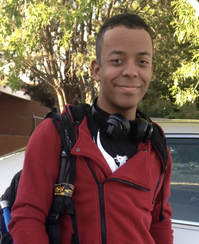 By Jon Revels - Guest Blogger Whatever decision is made in politics about more guns or less guns, restrictions or background checks, I think it needs to be made soon. There is something wrong with a country when it can’t make a decision on how to prevent something as horrible as this from happening, especially when it KEEPS happening. Columbine was almost twenty years ago. And it hasn't gotten much better since then. It’s disturbing that someone can walk into a school and just start shooting. I know that some schools have ways to deny entry, like a entry that requires an ID or a main desk attendant to unlock the door. Those are cool, and not enough schools have them. The fact that continued school shootings are an issue that very few steps have been made to amend is disappointing. I also want to bring another idea to the table. There’s all this talk about “stricter gun policy” and “more in-depth background checks” which are all great things to be thinking about and need to be discussed. But I feel as though we are forgetting something. We talk about how to PREVENT this from happening before it happens, but what about protecting those in the thick of it WHEN it happens? It’s sad to say this, but it is going to happen again. Tomorrow, next week, in a month, or next year. Preventative measures are good, but what happens when they fail? The obvious answer would be the police, or the SWAT, or the FBI, or whatever. But in the five to ten minutes it can take for them to respond, people can and will die. So, what I want to bring to the table is a defensive measure. I know this used to be a thing, and I think it still is in some places, but whatever happened to the campus police? Though I’m thinking something more along the lines of well equipped, trained, professional officers. Not your typical mall cop. Someone or a group of someones equipped with bullet proof vests, tasers, handcuffs, those cool paintball things that can shine under a black light in the chance that a shooter might escape, and a gun that can shoot both rubber bullets and, only in the event that nothing else can be done, lethal rounds. At least two in any school with more than a hundred students, and an additional one for every five hundred or so students there are in the school. This might help prevent a shooting, and if it doesn’t it could help stop it sooner. At the very least, it could help lessen the loss of lives until people can get away or the big guns can get there. These officers would not need to check bags, or be scary and intimidating. That would just make people paranoid and could make it harder to focus in class. They would just need to be there to protect students. Friendly people who are there in the off chance that something goes wrong. Yeah, they could break up fights or watch out for that idiot smoking under the bleachers when he should be in class. But their main goal should be to help the students feel safe, and KEEP them safe when the shit hits the fan. Whatever happens, whatever decision is made for gun control or background checks, and even if some sort of defensive measure is put into place, the reality is that this WILL happen again. And the fact that there are only a few ways to stop it once it starts is not a good thing. Recently a friend of mine posted an article from The Washington Post announcing "This Is How Ignorant You Have To Be To Call Haiti A Shithole" By Jonathan M. Katz. (https://www.washingtonpost.com/news/posteverything/wp/2018/01/12/this-is-how-ignorant-you-have-to-be-to-call-haiti-a-shithole/?utm_term=.92d1c2d5a39c) Willing to consider articles from diverse sources in an effort to be informed, I read it, hoping to learn something.
This APPEARS to be an authoritative article full of what seemed to be statements of historical relevance, which also happened to support the ignorance of Trump, his racist rationale, and his lack of knowledge about Haitian history. And then I came to the section about Francois Duvalier - Papa Doc - who the author says was an "American trained physician", a "black nationalist" who opposed "U.S. Imperialism" and "knew how to handle a nearby superpower (the U.S.)". The author also says that the U.S. gave support to Duvalier "when they weren’t trying to sponsor coups against him", until the end of the regime in 1986. End of story. This section on Duvalier paints him as being educated, a man of the people, and willing to be the David against the imperialistic U.S. Goliath, which would make him the best case scenario for Haiti. That makes it all good, right? WRONG. I've known enough Haitians (In New York in the 1980s) and read enough on my own to know that the Duvalier regime of almost 30 years was a reign of conflict, power-plays, indulgence, misappropriation of foreign aid and government funds, repression, intimidation, confiscation of peasant land holdings, torture, etc. Francois imbibed in the traditions of VooDoo and mainstreamed it into Haitian politics. (https://link.springer.com/chapter/10.1007/978-1-349-19920-4_8) VooDoo is still widely practiced in the country today. The article makes it appear that his dictatorship ended in 1986. Wrong again. Francois died in 1971 from heart disease and diabetes. His son, Jean-Claude (Baby Doc) succeeded him, and carried on in his father's fashion, embezzling government money into his own private coffers. HIS reign ended in 1986, overthrown by a POPULIST uprising, after which he and his wife abandoned Haiti and went into exile in France, along with their stolen riches. (https://www.nytimes.com/2014/10/05/world/americas/jean-claude-duvalier-haitis-baby-doc-dies-at-63.html) The Duvaliers were not saviors of Haiti. Thousands of Haitians were detained, tortured, killed, or fled the country during those years. Yet nothing....NOTHING... of these atrocities was mentioned in this article. The article just makes Francois Duvalier appear as a leader that was good for the country, and should be lauded, never mentioning the reign of Jean-Claude, and getting the dates of their dictatorships wrong. The author actually amalgamates two separate leaders into only one that it mentions...one (the father) whose reign the article says ended in the year that was the actual overthrow of the son. And then there are the "invasions" the author points to, such as when U.S. troops entered Haiti in 2004. The author derides the U.S. as being invaders at a time when yet another abusive Haitian tyrant-president, Jean-Bertrand Aristide, was on the brink of being overthrown by armed rebels. The U.S. put pressure on him to resign in an effort to forego more violence. U.S. President Bush sent in Marines to "restore order". It should be known that Canada and France also agreed to send troops(http://www.nytimes.com/2004/02/29/international/americas/haitis-president-forced-out-marines-sent-to-keep.html). So much for an "invasion". Did I learn something from this article? To some degree, yes. The erroneous Duvalier "facts" as stated in the article, and the "invasions" never accurately defined, made me question the veracity of the other points the author makes. I did more research of my own to understand the plight of our Haitian neighbors to the south. News articles are meant to enlighten us, make us curious, and give us a desire to become informed. But the reader having to seek further information on a subject should not have to be carried out in order to fact-check the writer. Katz' story is the kind of mixed bag of fact and shadow that continues to stir the pot of racial strife in America. If one doesn't know any of the history, they'll swallow this article and the authors bias hook, line and sinker. I feel I'd need to research the whole article to know what points are true and what are not. And that is mainstream media misleading and manipulating the public. Let the reader beware! May we read with both eyes open, and learn the history for ourselves. “I’ll have a fish sandwich please.”
On a hot day in July 1985, I was met with a blast of cool air as I passed through the door out of the blazing streets of Harlem into a world of fish and ice. Tables were piled high with an array of snapper, eel, shrimp, crab and other fresh sea food I found hard to name. The concrete floors were wet with melting run-off as workers in long aprons and boots called to one another in Korean. I craved a whiting sandwich, white fish rolled in cornmeal, deep fried, doused with ketchup and slapped between two slices of white bread. Heaven. You could wait for it to be served up sizzling from the fry basket at the front counter. As a twenty-something Italian-American in a Korean fish market in Harlem, I was a bit out of place. But I had found Jesus in a Black Church on 7th Avenue, and this community was now my home and had come to accept my presence. I watched the man behind the counter as young women do, taking note of his smooth skin, dark eyes and straight, black hair. He was my age and spoke with a heavy accent. Periodically, he cast his gaze my way and I realized, he was watching me. What did he see? I, of course, was not the epitome of Asian beauty. What did he like? My long, dark blond locks? My big, brown eyes? Small waist? Full hips? I certainly didn’t mind the attention. He bagged my sandwich and as he handed it to me, our eyes met. “You…..hab mustache,” he said in the best steamy English he could muster. I raised an eyebrow. I did indeed, have a mustache. As many Mediterranean women do. I was a bit put out by his comment. What was this? An accurate observation but to what point? Where could this possibly go? “I do,” I said. “And?” I refrained from sucking my teeth. “That sexy.” “Oh. Um……thank you?” I was stunned. Speechless. This was not what I expected. Not knowing how to react I paid my bill, flashed my best bewhiskered smile, and left, skipping all the way home. My facial hair? Of all things, he liked my facial hair? How bizarre. But, how nice. Weeks later, I wandered into a different fish market, with different Korean men, and waited at a different counter for another fish sandwich. I chuckled, thinking about that comical previous encounter as I watched the cook. Waiting for the fryer to finish, this man decided to make small talk as he wiped the counter directly in front of me. Quietly, so only I could hear, he said, “You…..hab mustache.” I raised an eyebrow, again. “Yes. I do. And?” “Thaaat sexy!” For real? Again? Again I’m hearing this! Of all things he could find sexy, it’s my mustache? I was hearing it from yet another Korean man. Asian men are so smooth skinned with little body hair. Italian women are often known for theirs. Why was facial hair considered alluring? Perhaps because people could be attracted to standards of beauty that are different from their own? I would never look at Korean men again without a smile crossing my lips. Through their eyes, I was learning to see myself as beautiful. As I lived and moved along the streets of upper Manhattan, my understanding of beauty continued to be shaped by the people around me. It was common at the time for Black women in the neighborhood and my church to not shave their legs. How freeing for me! One less thing to have to do. I gladly followed suit, and left my legs bare and bushy, or in panty hose and heels in my Sunday best. I fit right in, albeit perhaps a bit furrier than my Black sisters. One day, walking down the street with my legs flashing in sun dress and sandals, I passed two young Black men going the opposite direction. They had not gotten far behind me when one said to the other, “Did you see that? A big-legged hairy Caucasian.” I had to hold back from belly-laughing out loud. Ha-ho, that would never be considered a compliment in the community where I used to live. Yet here in Harlem, it was flattery. A standard I was heretofore unaware of, was deemed desirable. I began to look with new eyes at the men and women in the circles in which I moved. With greater and greater appreciation, I embraced the distinctions, including the loveliness of body shape, hair style, facial feature, and skin tone, which also included an increasing acceptance of my own body image. (Though I have since discovered the wonders of electrolysis and now happily live life sans mustache.) In Revelation 7:9-10, the Apostle John says: After this I looked, and there before me was a great multitude that no one could count, from every nation, tribe, people and language, standing before the throne and before the Lamb. They were wearing white robes and were holding palm branches in their hands. And they cried out in a loud voice: “Salvation belongs to our God, who sits on the throne, and to the Lamb.” I have no desire to be colorblind, to go backwards and minimize the artistry in how God made each of us unique. Revelation shows us a diverse multitude with distinctive people groups that will stand before God and worship Him in unison. If God saw fit to include His notice of our differences in His Word, then let us not fail to delight in His handiwork and treasure the variety in our fellow humans. There is no need to be blind to color. There is a need to see with new eyes, and love one another, exactly as God created us. Opening my essential oils, I poured frankincense and rubbed it into my mother’s hands. How much longer did I have to feel them warm when touched? I cupped my hands around her face and drew my fingers through her hair to surround her with the calming scent.
On Saturday, she was still able to do this herself, slowly drawing her hands up to her face to smell the musky fragrance in numerous short sniffs. “Mmm…mmm….mmm…” Soft murmurs of contentment emitted from her throat. Small pleasures so important in these moments. I had lifted the blankets from her legs, a long scar etched vertically across each knee. Her legs were now permanently contracted as post-polio played out its ravages on limbs that could no longer support her weight. I rubbed drops of lemongrass into her bulbous knees and atrophied calves. The perfume filled the room and drove out the stale nursing home odors. I ran my thumbs down her arches, gently kneaded the ball of each foot, and pulled my thumb and finger up each toe. She smiled. “Mmmmm…..” Such precious time left, to make my mother smile. But that was two days ago. The nurse switched on the light as she entered the room, abrupt and intrusive, forcing me to surface from sleep. “Here Barbara,” she whispered, leaning over my mother. “Here’s some medicine for you.” She slipped the syringe under Mom’s tongue and administered the morphine, her gentleness countering my defensiveness to guard my mother’s comfort. Our two air mattresses took up the rest of that small room. Air mattresses were for sleep overs and camping. Not nursing homes. Well, I guess now, for nursing homes. Bridget stirred next to me. Dee turned over in the other corner of the room. I could see Mom, the head of her hospital bed elevated so she would not choke on the build up of fluid she could not expel. She was listing to the left, no longer able to right herself. “Ohhhh Mom……” I whispered. My stomach tightened. With every breath her body surged up and down, her lungs struggling to expand against gravity. I got up to have the nurse help me re-position her as we’d done repeatedly the past 3 days. The congestion in her chest gurgled as loud as the humidifier on the oxygen tank next to her. Once again, her skin was too warm. “Can you get a temperature for me? And O2 sats?” I waited for information I knew was coming. The nurse looked at me with understanding eyes. “Her temperature is 103. And her O2 is…….56.” How long can the brain function with oxygen that low? How long will a body fight to live? Okay. She is not aware of this. But I am. With those numbers my sisters jumped up. One ran warm water in a basin and the other grabbed washcloths, while I removed the blankets. We worked in silence in actions that had now become routine. Dipping the wash cloths in. Wringing the water out. Laying them on my mother’s arms and legs. “Is this fever due to an infection?” I’d asked the head nurse. “No honey. This is what happens when organs start to shut down. Not for everyone. Just for some. Our job now is to make her comfortable.” When a nurse puts her arms around you, it gives a hug whole new meaning. She eases the pain of the living, and the dying. Morphine in human form. For the next hour, we worked to bring down Mom’s temperature. We stroked her face, kissed her and whispered in her ears. “Mom. You don’t have to stay you know. We’re here. You can go. Whenever you’re ready. We’ll be okay. I love you, Mom. You don’t have to stay.” We took turns lying next to her, putting arms around her, re-configuring her pillows and moistening her lips. I bent down to listen to her heart. The time was coming when I would no longer be able to hear life beating in her chest. Women, taking care of a woman. Touching this one who was the source of all three of us, and once carried us into life. It was our turn to carry her now, and see her birthed through death, into new life. “Hey, look at her eyes. They’re different,” said Bridget. “Something’s changed.” For all of Monday and into Tuesday, Mom’s eyes had been mere slits, barely open in a coma-like state. Now, they were wide open. Wide open. Looking straight up. I could see the full beauty of her green eyes again. Fixed. On what? Suddenly her mouth filled with the fluid she had long been fighting to cough up. We suctioned it out and cleaned her face. Recognition hit us. “This is it,” said Bridget. “Don’t miss this.” Then, as the muscles relaxed and death began to descend, with no ability to take in air, the weight of the atmosphere bore down on her tired lungs. All the congestion she had been drowning in, came pouring out. Free of it. Finally. We wiped it away. I suctioned her mouth again, knowing what was next. We stood there. Silent. Watching. One huge gasp. Exhale. Wait. Another huge gasp. Exhale. Wait. Wait. Wait. Silence. It was finished. “Go Mom!” Our sister voices filled the room! “Yay! Yay, yay, yay! Go Mom. Go, go, go! Good-bye Mom! I love you! I love you Mom! Good-bye Mom! You’re done with this old body! You don’t need it anymore! You’re free. Fly away Mom! Fly away! Fly away!” Immediately, her body changed. The wrinkles left her face. The furrows left her brow. The color left her skin. The warmth left her hands, and the light left her eyes. Mom was gone. Only her shell remained. It was strange to feel elation in such a moment. It was not what I’d expected to feel. The animation that the spirit gives the body is a compelling force. To see the void left when the spirit withdraws is startling. Surprising. I kept looking up to the ceiling, then back to the bed, wondering what my mother was seeing from her new vantage point above as her daughters danced around a body in which she no longer dwelt. So why should I stare down at her form? I looked up. I reached up. And smiled. Good-bye Mom. I love you. I’ll see you soon. October 10,2017 saw the passing of the woman who raised me. I will never again in this life, call someone "mother". If this had been my husband or my child, I'm sure I would have felt differently, but she had lived for 87 years and was ready to go. Through Christ, we triumph over death. If we stand fast in our faith, we can peer into the infinite and have nothing to fear. Witnessing her death was a brush with divinity. It was a sacred moment to behold the departure of a human soul, and its glorious arrival in eternity. "For the perishable must clothe itself with the imperishable, and the mortal with immortality. When the perishable has been clothed with the imperishable, and the mortal with immortality, then the saying that is written will come true: “Death has been swallowed up in victory.” Where, O death, is your victory? Where, O grave, is your sting?” - 1 Corinthians 15: 53-55 For the day of his funeral, July 14, 2017 – by Susan Parlato Revels
“Vinnie,” I heard my mom say, “Susan is not breathing any better.” From under the towel with my head over a bowl of steaming water, I listened to my parents, Vinnie and Barb Parlato, discuss my condition. “I think I need to take her into the hospital,” said Dad. Once again, my lungs were the seat of some infection that constricted the bronchi. This time, the midnight steaming didn’t break up the phlegm. At 12 years old, on a bitter night in the dead of March, the only thing I wanted was to crawl back into my warm bed. Instead, I was bundled in a parka and into the truck, nightgown and all, and Dad and I headed out into the darkness. It was one of those nights where the sky was cloudless and any heat the earth had gathered from the day was shunted off into space. It left the air crisp to the resistant membranes of my lungs. My fevered body withdrew deeper into the parka. The truck rumbled along to the sound of the tires muffled on snow packed pavement, and my wheezing. We wound through deserted streets and came to a stop at Oneida City Hospital on Main. I followed my dad through the astringent air towards the entrance. What I didn’t know was how that air was causing a break up of mucus in my chest. As we walked through the doors into the vacant reception room, some congested plug deep in my lungs broke loose and completely blocked the passages. All breathing ceased. I dropped to the floor. Without air flow, I couldn’t shout out to tell my father something was wrong. I watched as Dad walked toward the nurse at the reception desk, unaware of the emergency unfolding behind him. How could I get his attention? I flattened my palms and began smacking them against the tiles, hoping he would hear the slaps. The nurse pointed at me. “Your daughter! Your daughter!” Dad turned to see me, and ran. He scooped me up and carried me down a hallway, busting through the doors into the emergency unit. “My daughter can’t breathe,” he screamed. Staff whisked me into an exam room pulling off my parka and beating my back. Up onto an exam table. Lights. Shouting. Beating. Faces. Hands. One nurse had just pulled off my night gown when suddenly, the beating loosened the plug and with one wretching movement I vomited a great volume of green mucus into the hands of the nurse standing in front of me right into my nightgown. I looked with consternation at what had just exited my lungs. “Wow,” I thought. “I am sick.” I could breathe again, with strident whistles. They admitted me that night and put me in an oxygen tent. A tracheotomy tray stood at the ready if needed. Dad saw me settled in. He went home. I went to sleep. Years later, reflecting on that whole incident, I never thought I would die, nor was I afraid. Why would I be. Everything would be okay because, my Dad was there. I remember being small and carried in the muscled arms of my father. The world looked different at 6’3”. We crawled on his broad back when he’d lay on the floor to read the funny papers which sometimes descended into tickles and laughter. On occasion, we’d watch fleas jump across the outspread paper. “Barbara! We have to bomb the living room!” The animals would all get new flea collars. Dad always found extra work to supplement his day job as in industrial arts teacher at Canastota High School. There was Ackerman Construction in the summers. Carl’s Drug Store at night. From our beds, we’d hear him return home from his night job. Did he bring ice cream this time? He’d come to the bottom of the stairs and shout, “WHO WANTS A MILKSHAKE?!” Five voices shouted, “I do!” and ten feet would stampede down the stairs. In his forties he decided to learn the horseshoeing trade, and that was his second job for the next 15 years. Music often filled the house on Lake Road. When Clair de Lune was played, Dad would sit for the length of it with eyes closed. Nat King Cole, Frank Sinatra, The Glenn Miller Orchestra were regular fare. Mom and Dad would dance in synchrony around the family room. As a child, I’d stand on his construction boot toes and have him whirl me around in a fox trot. As I grew older, I learned the steps myself, and how to follow his lead. On summer mornings when teenagers want to sleep in, Dad would stand at the bottom of the stairs and yell, “Everybody up! We have work to do!” No stampede to these words. Weeding the very large garden with 90 tomato plants alone. Canning and freezing vegetables. Grooming horses. Cleaning the barn. During hay bailing season, my brother would drive the tractor. Two sisters would be up on the hay wagon. I wanted to be with my father, walking alongside and throwing bales up to my sisters, hayseed weaseling down inside my overalls. At the end of a long day, he’d plop down in his arm chair and put up his feet. “Can you pull my boots off please?” One of us would bend to untie his boots. Once the second one came off he’d reach out to try to touch us with his sweaty toes, laughing. “Ew Dad, Ewwww!” Seasons came and went. The leaves changing color - always a time of wonder for my father. And when geese filled the skies for their southern migration, Dad would shout, “Geese! The geese are flying!” and we’d pour out the door to stand, watch, and listen with him. Life threw its share of wrenches into the works. Jamie, my baby brother, died. My mom got sick. Our family was in trauma and as a teenager, for the first time I saw my father cry. When he leaned over to rest his head on my shoulder and weep, I felt inadequate. How could I, one so insignificant compared to this mountain of a man, be strong enough to support him in his need? I wished I could have been bigger for him. Time brought the children leaving Lake Road bound for college or the military. One winter I returned for an 8-month period while seeking my next job opportunity. After work, while sitting in the sunroom reading, I’d feel the room shake as Dad made his way to sit in a chair near me, just to talk. This became a pattern between us for many months. I eventually found a job that would take me far away, to New Mexico. I could hear the dread in his voice as the day for my departure drew near. That day, he helped me pack my life into a car to drive 2000 miles across the country, alone. “I want you to call me, every night, when you’ve gotten into a motel.” “It’ll have to be collect calls, Dad.” “I don’t care. Call me. Every night.” He hugged and kissed me goodbye, then walked back into the house choking back tears. He couldn’t watch me drive away. But their visits to New Mexico brought adventure. Their first time out I didn’t know what my parents would do just hanging around my house, so I planned a road trip. How would it be traveling in the car with them for 7 whole days? But the first day out, a half hour into the journey, Dad said, “Geez every time you turn a corner here, there’s something new to look at!” His appreciation for the grandeur of nature became more and more apparent to me. We found potsherds at Chaco Canyon and went camping in the Kaibab Forest of the Grand Canyon. Sitting around the evening campfire surrounded by darkened forests, he kept the machete close at hand. “I don’t know about this,” he said smiling. “I feel naked without my gun.” Over the years, we would talk of God and the future. “Look Dad. Isaiah says that God will create a new heavens and a new earth, and they will be so spectacular, we won’t even remember the old ones. Can you imagine? And Dad. Isaiah says, ‘They shall build houses, and inhabit them, they shall plant vineyards, and eat the fruit of them. They shall long enjoy the work of their hands.’ Dad, we’ll be working with our hands in heaven, planting, and eating the harvest.” He listened. He resisted scripture at first. But as years went by, and life became more burdensome, Dad began to see God’s hand more clearly. A cane became a walker. A walker became a wheelchair. He began to see God everywhere. At first, it was in the parking lot at Walmart. “Sooz, I’ll be driving up to Walmart praying about how I’m gonna get in the door. And when I drive up, a handicapped parking spot opens, or someone’s coming out with a scooter!” “Yeah Dad. Isn’t that amazing? And remember, God is more than just a parking lot god. He wants you to trust him with the big things, as well as your parking space.” Dad began to speak to God outright and acknowledge Him day to day. He turned to contemplate his life, and eventually came to recognize all along where God had stepped in to set a different course. He saw that nowhere more so than when as a young soldier, he was on his way to Korea, and Providence intervened to change his deployment to Japan instead, and he survived the war. As his days grew difficult, he would call on Jesus to help him stand to his walker. “Help me Jesus. Help me Jesus.” Watching my father decline in strength and ability was grueling to witness. But hearing his whispered pleas to Jesus gave me that peace that goes beyond all understanding. My father could be opinionated and stubborn, as well as loving and loyal. But he instilled in us, his children, a fierce work ethic, and galloping independence. A respect for higher education, and an appreciation of nature. We are all highly opinionated, stubborn, loving and loyal….in our own ways. Although, we do get rid of a lot more things than he did. Job, the most ancient book in the Bible, is about a man who lived well before the Law was given to Moses. Job knew that God was his Redeemer. He was tested beyond strength, yet in his testing he said, “For I know that my Redeemer lives and that he shall stand at the latter day upon the earth. And though after my skin, worms destroy this body, yet in my flesh - shall I see God: Whom I shall see for myself, and mine eyes shall behold, and not another.” Job believed in the resurrection, and when God returned to stand upon this earth, Job would be there, in his very flesh, to see God with his own eyes. My father will be there too. And so will I. Until then, Clair de Lune will always move me to tears, and hearing the mournful call of geese flying overhead will stop me in my tracks. One day, I will see my Father again. But he will be different. No gray hair. No weakened muscles. He will no longer have need a of a walker. And he will run. He will run to me and whirl me around in his arms and say, “Sooz I’ve missed you!” and then show me around Paradise. We will dig rows in the soil and cover over the seeds with our hands. And I’m sure, we will each reach for a sun-kissed tomato from his 90 tomato plants, pull them fresh from the vine, rub them against our shirts, and bite into their sweet warm flesh, again and again, and again. My name is Susan Parlato Revels, Vincent’s daughter. Thank you for coming out to remember my father today. Thank you for listening to my stories. At the reception, I hope to hear some of yours. My father sat in the cardiologist’s waiting room as the nurse took my mom back for a stress test. It would be awhile. Dad thumbed through magazines and people-watched to pass the time.
“Mr. Revels,” called the nurse. Dad looked up when he heard the name. Revels, he thought. An older Black gentleman stood to follow the nurse. My father watched him cross the room and wondered if he could be related to my husband. Revels was not a common name. This was upstate NY, and I Iived 2000 miles west in Albuquerque. There couldn’t possibly be a connection, he mused. But he waited, and watched the door for Mr. Revels. Dad was Italian, and growing up Italian in the 1930s and 40s meant that like many other first generation immigrants trying to assimilate, there were challenges. If your last name carried a vowel at the end, you were closed out of some circles of society. The dark-skinned Sicilians especially were targets of mistrust and contempt. In the south, they were sometimes listed as “black” on census forms, and some became victims of lynching. As they vied for social mobility in direct competition with those in the Black community, schisms formed between the two cultures and Italians worked to distinguish themselves from their rivals. My dad tried to teach his children to do the same. He taught me his tricks. His fears. His angst. His wheeling, dealing way of bargaining through life. I grew up hearing the Italian words that communicated contempt for Black people. When my sister dated a mixed-race young man in high school, Dad bit his lip. “She’ll grow out of it,” he said. When I started dating Black men in college, Dad disallowed my youngest sister from attending the same university out of concern for my influence on her. “I don’t want another daughter dating tsootsoons”. But time and contact with my circle of friends began showing my father a new way to connect with Black people. He slowly started to disengage from the assumptions of his past. It was a feat then for him, years later, to say yes to my husband Scott, who is Black, and Scott’s request for permission to marry me. My father was adding to his repertoire of tools for engaging the world. Dad watched the door for Mr. Revels to emerge, hoping it would happen before my mom was done. His mind ticked off the questions he might ask this man, if he had the chance. The door opened. “Excuse me,” said Dad. He stood and approached the gentleman. “Did I hear your name was Revels?” “Yes,” said the man. Dad said he had a puzzled look on his face as Dad came near. “My daughter married a Revels. Scott Revels. They live in New Mexico. Do you happen to be of any relation to Scott?” “Scottie? In Albuquerque? ” said the man. “Yes! That’s Jim’s son! With his other two boys, John and Jim! And daughter, Andrea. Yes those are my cousin's children!” “Wow,” said Dad. “He’s my daughter’s husband. This is unbelievable. What a small world we live in. I’m Vinnie Parlato. So nice to meet you.” He held out his hand in greeting. “Nice to meet you,” said the gentleman. His look of puzzlement bloomed into a smile as he took my father's hand. “I’m Thomas Revels. So Scottie is your son-in-law?” They traded details about their lives and this odd discovery of having a familial connection with a total stranger. They lived a mere 30 miles apart. Dad pulled out his wallet and together they stood in the waiting room flipping through photos of my son and daughter - children that they were both related to by blood. “This is my grandson, Cole. And my granddaughter Gianina,” said Dad. “Scottie’s children,” said Thomas, shaking his head. “Wow. Those are Scottie’s children.” Dad called me immediately upon returning home that afternoon, excited to tell me about this chance encounter. He had reached a point in life where he was beginning to recognize God’s hand in orchestrating such strange occurrences. I was fascinated to hear him reiterate this story, and felt my heart skip a beat or two. You could hear the smile in his voice and his wonder at the impossibility of such a confluence of circumstances. I imagined them standing there, these two older men who had never met before - one Black, one White - as they perused pictures of two small children, their shared kin. It warmed me to know that my father carried around the photos of my son and daughter, and shared them with pride that they were his grandchildren. His brown grandchildren, whom he loved. The “old dog”. He had learned some new tricks. What a different man than the one I grew up with. Neither he nor I could have imagined this was even possible, fifty years ago. “No one is born hating another person because of the color of his skin, or his background, or his religion. People must learn to hate, and if they can learn to hate, they can be taught to love, for love comes more naturally to the human heart than its opposite.” ― Nelson Mandela, Long Walk to Freedom
|
Susan Parlato RevelsArchives
June 2024
Categories
All
links to other sites
www.abuacademy.com
|

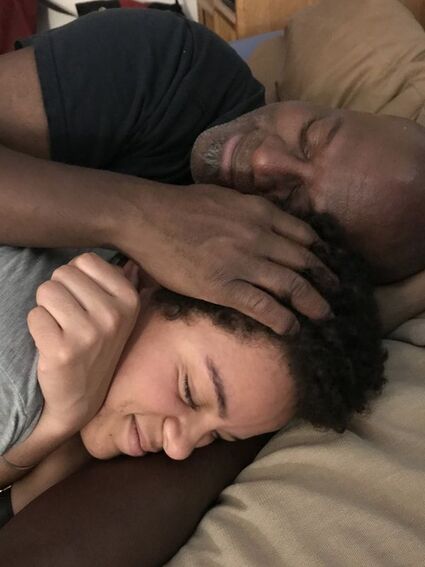
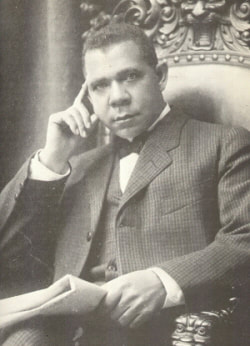
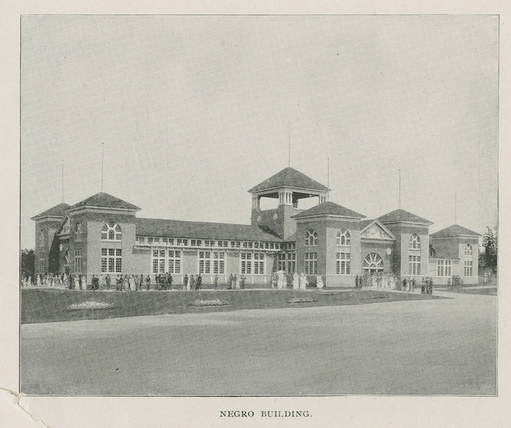
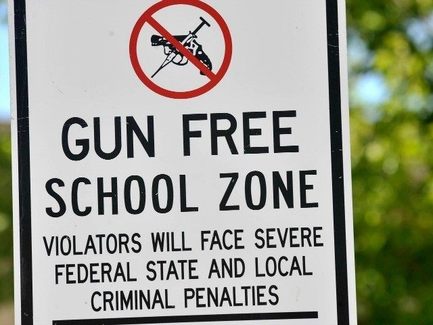

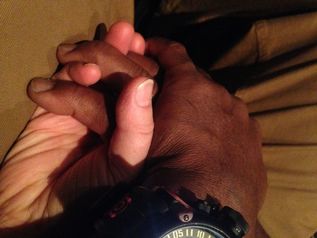
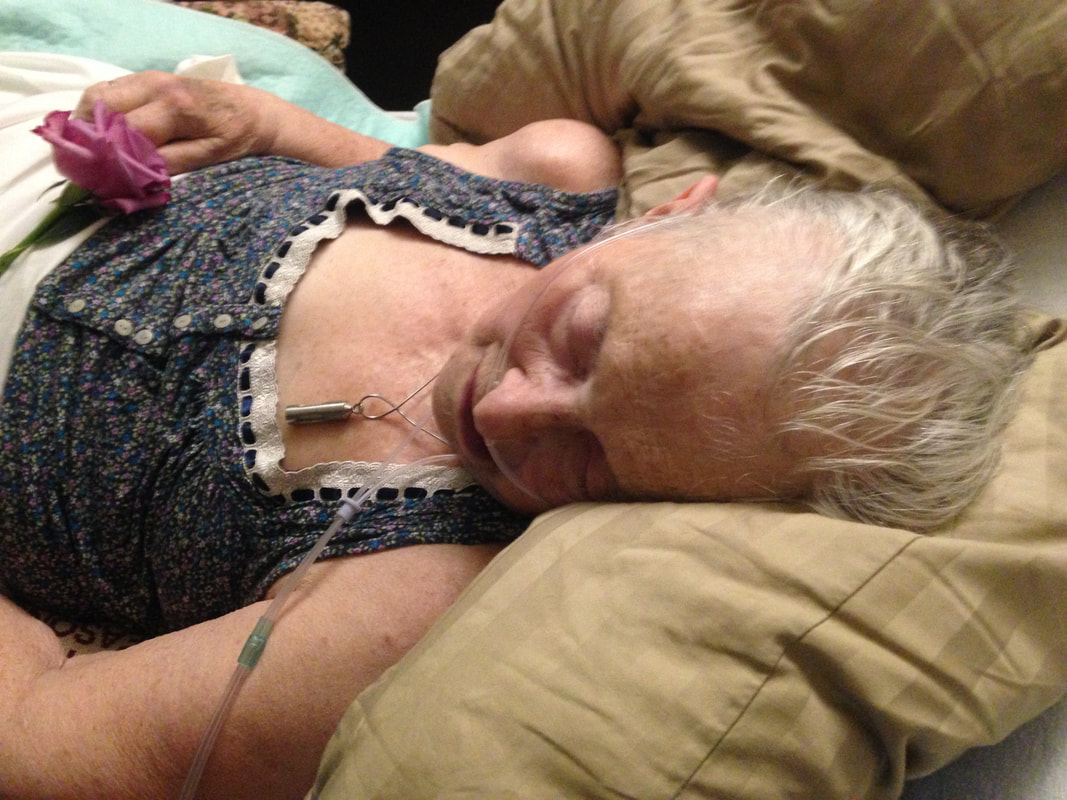
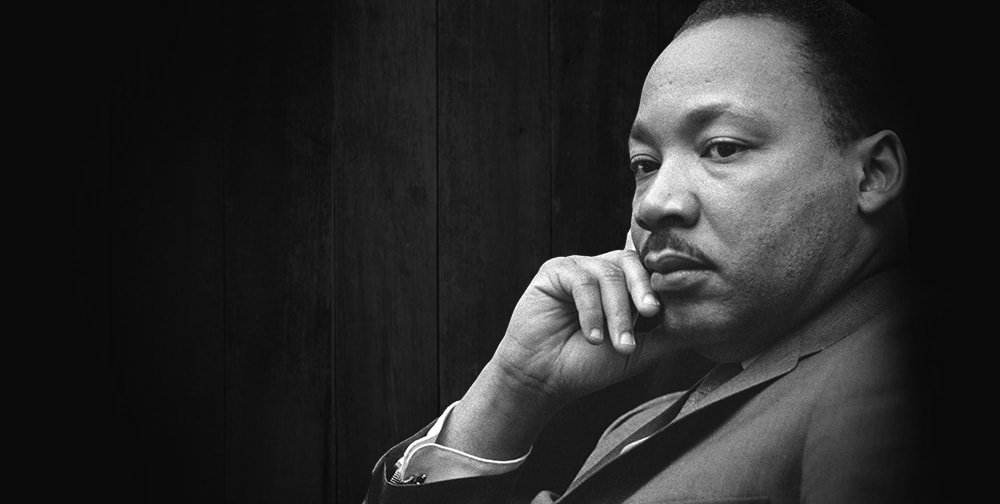
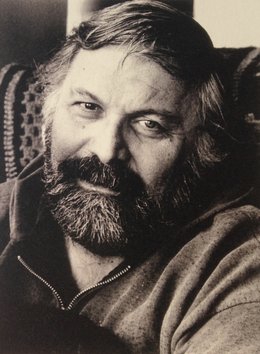
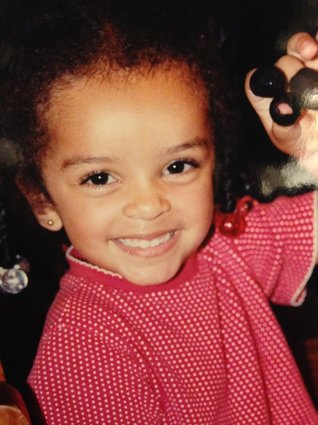
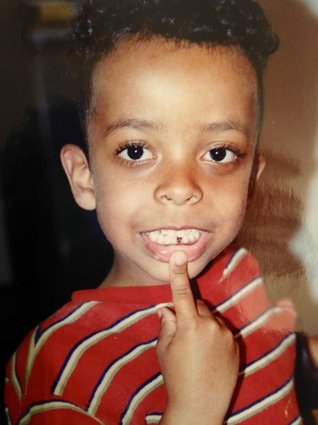
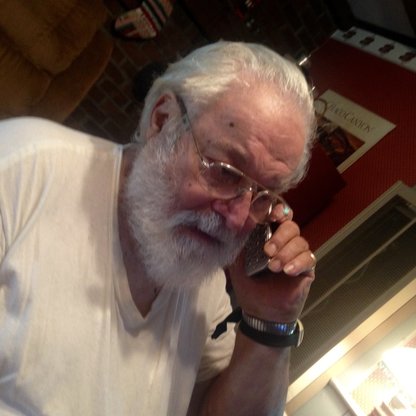
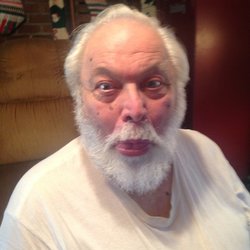
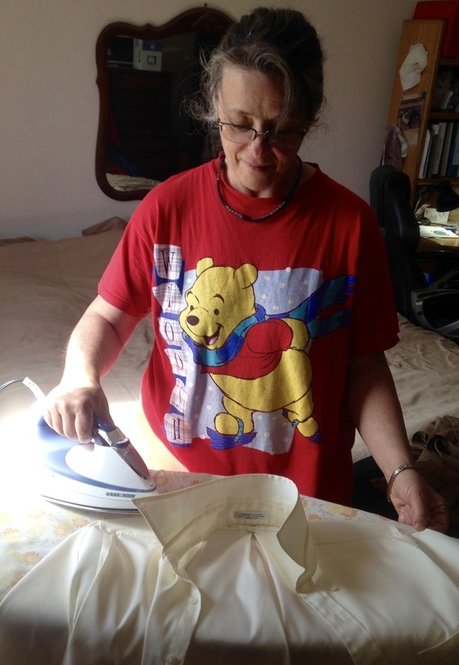
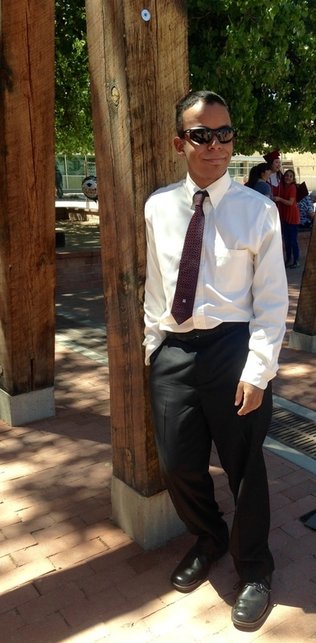
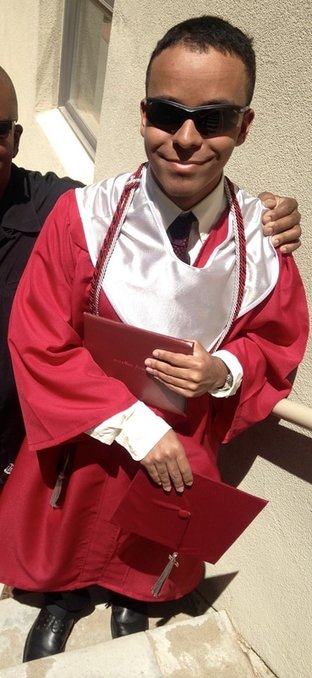
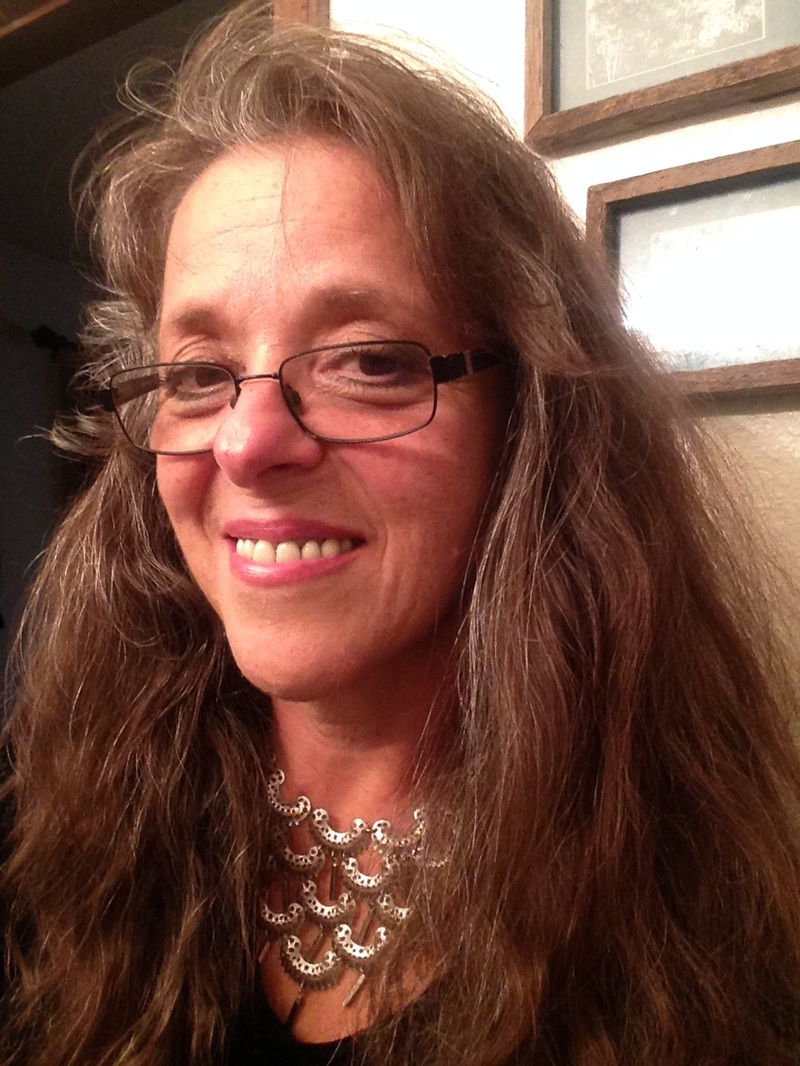













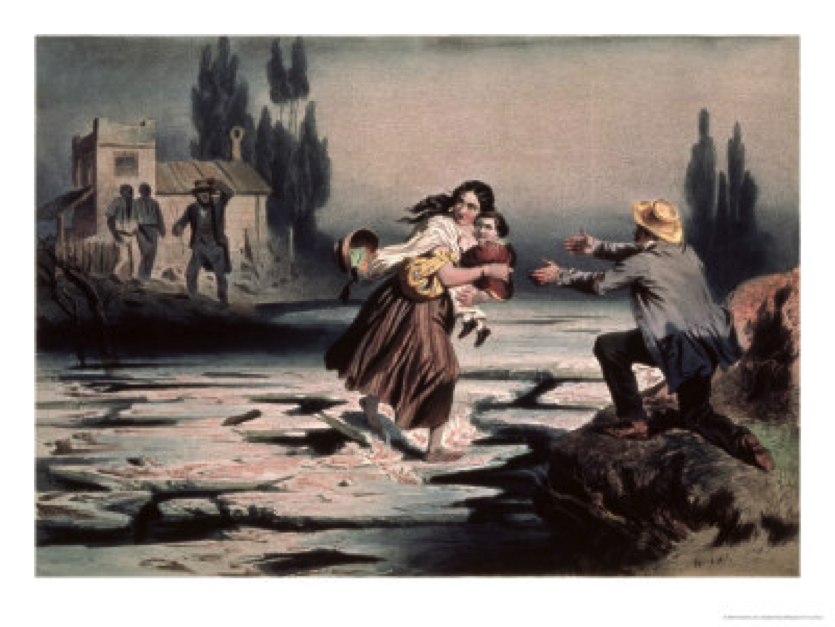

















 RSS Feed
RSS Feed